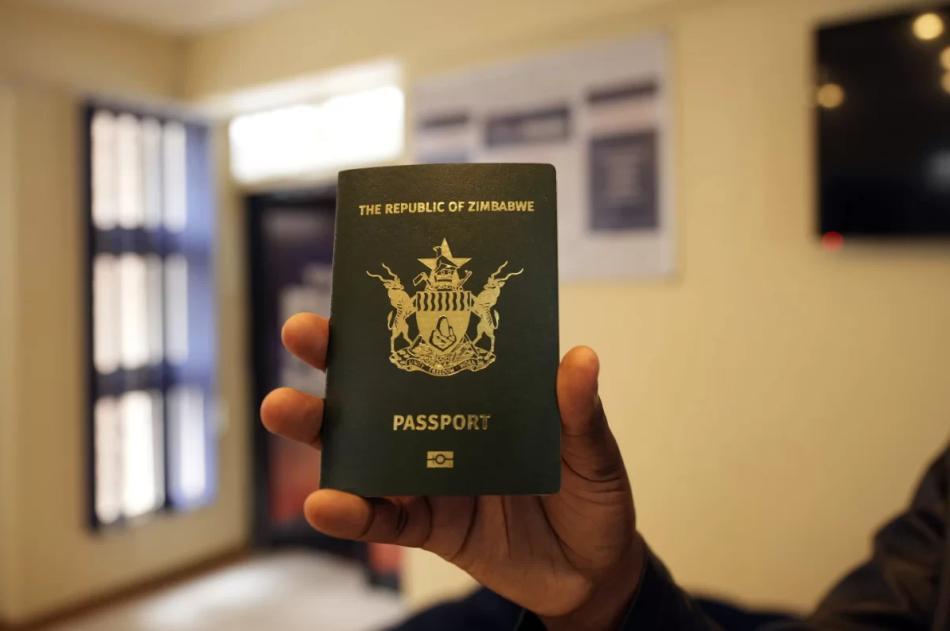Africa-Press – Zimbabwe. IN March 2025, the United States announced new visa restrictions targeting a number of Zimbabwean officials.
The US claimed that the logic informing this development stemmed from allegations of election irregularities, political repression and consistent human rights violations.
For Washington, this was a completely justified part of a long-standing commitment to encourage democratic values.
However, for Harare, it was another demonstration of what local officials call a usual pattern where Western powers flex political muscles by interfering in local affairs, while displaying double standards and gross hypocrisy — this moves beyond a diplomatic tit-for-tat.
At the epicentre, the visa ban reopens the floor to questions around unequal global power distribution, often disguising traces of coloniality.
The US is not simply throwing its weight around but rather buttressing its position at the epicentre of the international system while subtly calling for a renewal of colonial matrices of power.
For Zimbabwe, the ban is a symbolic rejection and a loud reminder that true postcolonial sovereignty remains challenged. This article unpacks the political tensions, as well as the masked decolonial dimension.
While it may be argued that the move to ban visa distribution was purely an act of soft power diplomacy, there is also the weight of selective prosecution lurking in the background.
Simply put, penalties can be, ideally, passed only to those accused of carrying out an injustice like denying corrupt leaders the privilege to travel internationally.
However, ironically, the visa ban may achieve the opposite of its stated goal.
President Emmerson Mnangagwa’s administration, long positioned itself as a defender of national sovereignty against Western interference and these restrictions have managed to raise further questions on who gets to decide which leaders are legitimate and whose violations are worth punishing.
The US, like many Western powers, is a self-proclaimed enforcer of global norms.
This reflects a typical neocolonial hierarchical system, where African sovereignty is purely contingent on compliance with Western expectations, as evidenced by previous visa bans that are rarely applied to US allies with similar or worse human rights records.
This inconsistency fuels the perception that such measures are less about values but more about influence and an act of gatekeeping, literally restricting access to global spaces, while appearing to be reinforcing the moral stance.
It is further cemented by the cyclic nature of punishment and pardoning, the recent promise of sanction removal by the US can be perceived as a political tool that frames re-admission into the diplomatic fold not as a right, but as a pardon only granted by the West, thus reinforcing the relations as purely conditional.
It is imperative to note that Zimbabwe is a country that defines itself through a rich history of liberation and anti-imperial resistance, therefore these bans don’t just isolate, they provoke.
Therefore, rather than signalling self-reflection or reform, the ban has been used to support diplomatic redirection towards global partnerships with powers such as China, Russia and fellow Brics members.
This strategic defiance is not new, it stems from the early 2000s, following the controversial fast-track land reform programme to which the US enacted the Zimbabwe Democracy and Economic Recovery Act in 2001 which set the tone for future restrictions.
Zimbabwe has crafted a foreign policy identity rooted in resistance to Western pressure, specifically those in the form of sanctions or public rebuke.
In the end, the US visa ban on Zimbabwean officials is more than just a bureaucratic restriction, but a symbolic expression of power because while Washington defends the measure as a stand for human rights, Harare sees it as a continuation of a colonial logic that punishes disobedience more than injustice.
Zimbabwe’s conduct remains monitored side-by-side a foreign standard that can impose and potentially pardon at will on the condition of “behavioural change”, good governance, which is ever shifting to suit geopolitical interests rather than genuine democratic progress.
But in the midst of this, does this external pressure address authoritarian tendencies or does it offer an escape route for domestic failure? And in the court of public opinion, who ultimately defines legitimacy, a voter, or a visa-granting power?
As Zimbabwe navigates a complex global landscape, caught between global isolation and strategic realignment, these US-Zimbabwe relations have reflected deeper ideological divides.
Despite leadership changes and promises of reform under new leadership, Zimbabwe’s re-engagement with the West has remained rocky.
The most recent elections, marred by reports of intimidation and voter suppression, reignited international scrutiny and were used by Washington to effect the bans which have been received by Harare as part of a deep rooted feud, where former colonial powers police African democracies but overlook abuses elsewhere.
While the bans don’t extend to the general public, their symbolic weight cannot be overstated because in effect, they brand certain Zimbabwean elites making them unable to enter spaces of diplomacy, business or personal travel.
For these ruling elites, it’s an inconvenience — but also a political tool within the domestic discourse where these bans often fuel anti-Western narratives and help to frame external criticism as neocolonial aggression.
For the rest of the country, especially individuals in the diaspora or those seeking international opportunities, the message is more ambiguous: do these actions promote accountability or entrench recyclable politics of punishment and pardon over a more diplomatic route?
For More News And Analysis About Zimbabwe Follow Africa-Press






